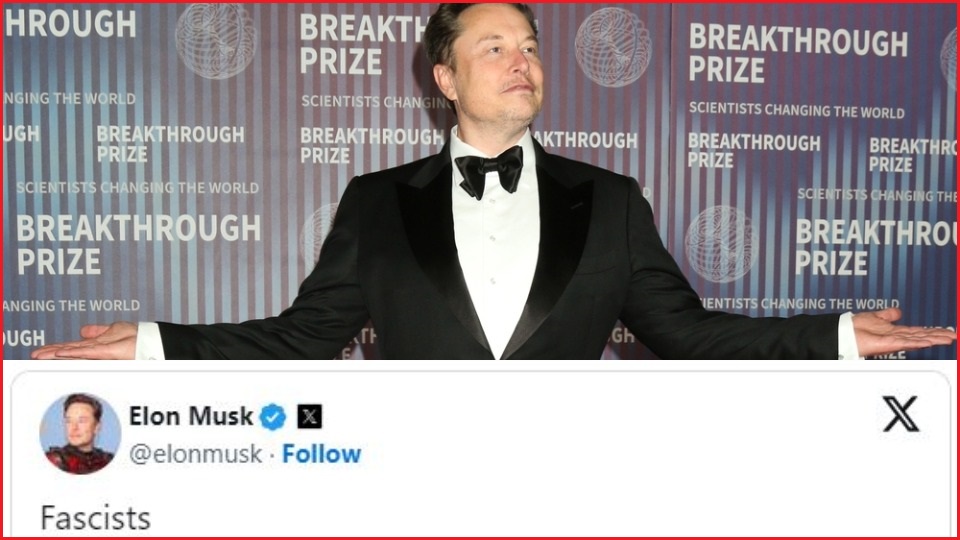Australian politicians have criticised X owner Elon Musk for describing the federal government as “fascists” over proposed new laws which would see digital platforms fined up to 5 per cent of their global revenue if they failed to prevent the spread of misinformation.
Labor introduced the bill on Thursday and pledged to give the Australian Communications and Media Authority (ACMA) new powers to put greater pressure on tech companies and their social media platforms while maintaining protections for freedom of speech.
Minister for Communications, Michelle Rowland, said the government believed the threat posed by misinformation and disinformation was “a serious threat to the safety and wellbeing of Australians, as well as to our democracy, society and economy”.
“Doing nothing and allowing this problem to fester is not an option,” she said.
On Thursday evening, Musk shared a post on X about the news, with the caption: “Fascists.”
In response, Prime Minister Anthony Albanese said on Saturday: "Social media has a social responsibility — if Mr Musk doesn't understand that, that says more about him than it does about my government."
Musk later shared Albanese's comments, adding the caption, "Far left fascists love censorship."
Mis- and disinformation have escalated on X, formerly Twitter, since it fired trust and safety staff and reinstated accounts previously banned for content violations in the wake of Musk taking over the company in 2022.
Responding to Musk’s comment during an ABC News interview on Friday, Assistant Treasurer Stephen Jones described Musk’s conduct as “crackpot stuff” and said all governments had the right to pass laws to protect their citizens.
“It's absolutely absurd to say that the normal laws around defamation, the normal laws around criminal activity, the normal laws around false or misleading statements in the conduct of business apply everywhere except on the internet,” he said.
“That's absurd.”
Government Services Minister Bill Shorten told Channel Nine: "Elon Musk has more positions on our free speech than the Kama Sutra.
"When it's in his commercial interests, he is the champion of free speech. When he doesn't like it, he's going to shut it all down,” he said.
Fascists https://t.co/NQcR9justJ
— Elon Musk (@elonmusk) September 12, 2024
Opposition argues bill threatens free speech
The opposition’s spokesperson for communications, David Coleman, told Sky News on Sunday that he would not endorse Musk’s use of the term “fascists” but described the government’s new bill as “grossly incompetent” and “contemptuous of free speech”.
He described the government’s previous misinformation bill as “a grotesque piece of legislation”, argued the new version had “a lot of issues”, and said he was concerned the voices of ordinary Australians would be silenced.
The previous misinformation bill threatened companies with fines of up to 2 per cent of their annual turnover.
Coleman said he would have more to say on the Coalition’s policies around misinformation before the next federal election.
The Greens’ spokesperson for communications, Sarah Hanson-Young, said it was “clear that the global tech giants are unwilling to act in the public interest without strong regulation and enforcement”.
She said the Greens would make sure the government’s legislation was assessed through a Senate inquiry, but also called for “a crackdown on the profit-making outrage factories of the Murdoch media, as well as the tech giants”.
The government’s updated proposal for misinformation legislation came as it ratcheted up its focus on tech companies with other legislation such as banning children from social media, criminalising doxxing, introducing a Scam Code Act, and updating the Privacy Act.
Tech self-regulation criticised
The government said its new misinformation bill would allow ACMA to “oversee digital platforms with new information gathering, record keeping, code registration and standard-making powers”.
The bill would “complement” existing voluntary industry codes but would allow ACMA to create its own code “should industry self-regulation fail”, Labor said.
Advocacy group Reset.Tech Australia said while it supported greater regulatory powers to manage misinformation and disinformation, it was “deeply concerned” that relying on voluntary industry codes would be ineffective, arguing it “lets Big Tech off easy and stymies public accountability”.
“ACMA should be immediately empowered to bypass industry codes and set a standard,” the group said in a statement.
“The bill currently considers regulator standards-setting as a ‘last resort’, but it is evident that the threshold for ‘last resort’ has already been crossed.”
An experiment published by Reset.Tech in May tested social media platforms’ approval systems by submitting “a range of paid-for ads containing explicit electoral misinformation” — the overwhelming majority of which were approved by the platforms before Reset.Tech prevented them from being posted publicly.
Reset.Tech has previously accused the Digital Industry Group Inc (DIGI) — which operates a voluntary misinformation code adopted by Adobe, Apple, Facebook, Google, Legitimate, Microsoft, Redbubble, TikTok, and Twitch — of a conflict of interest due to it receiving funding from many of the companies subject to its code.
X was kicked off the code in 2023 after it removed the ability for users to report politics-related misinformation on its platform.
DIGI’s managing director, Sunita Bose, said the organisation welcomed the government’s new bill but was awaiting further detail.
Advocacy group Digital Rights Watch argued that “equal attention ought to be paid to mainstream media outlets and our own political parties” when it came to mis- and disinformation.










